|
From the Dean
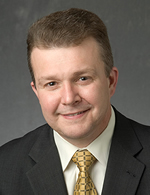 Hope your summer is off to a great start! This is the time of year when I regularly get some form of the question: “What are you doing with your spare time now that it is summer?” Those not directly involved with Purdue Agriculture just don’t understand the very high level of activity in the College right through the summer! Some months, the topic I need to address in my InFocus column is blatantly obvious, and this is one of those months. Over the last six weeks, our College’s work to address global food insecurity has certainly been the story. You can read more in this issue of InFocus about many of these projects and activities. Hope your summer is off to a great start! This is the time of year when I regularly get some form of the question: “What are you doing with your spare time now that it is summer?” Those not directly involved with Purdue Agriculture just don’t understand the very high level of activity in the College right through the summer! Some months, the topic I need to address in my InFocus column is blatantly obvious, and this is one of those months. Over the last six weeks, our College’s work to address global food insecurity has certainly been the story. You can read more in this issue of InFocus about many of these projects and activities.
Major grants have recently been announced from the Bill and Melinda Gates Foundation and from USAID. The $10 million Gates Foundation grant will fund PICS 3, the third stage of the high-impact Purdue Improved Crop Storage project. More than 3.5 million PICS bags (developed by Dr. Larry Murdock in Entomology) are already at work in Africa and Asia. PICS 3 will extend the technology to some new crops (dry grains including corn, common bean, wheat, peanuts, pigeon pea, and sorghum) and expand the partner countries – PICS 3 will focus on Nigeria, Burkina Faso, Ghana, Uganda, Tanzania, Ethiopia, and Malawi). The PICS 3 team, led by Dr. Dieudonné Baributsa in Entomology, includes Jess Lowenberg-DeBoer, IPIA; Larry Murdock, Entomology; Charles Woloshuk, Botany and Plant Pathology; Corinne Alexander, Agricultural Economics; Jacob Ricker-Gilbert, Agricultural Economics; Scott Williams, Entomology; Carole Braund, IPIA; and Heather Fabries, IPIA.
The $5 million USAID grant will launch the Feed the Future Innovation Lab for Food Processing and Post-Harvest Handling. The focus of this project includes improving the drying and storage of cereal grains, increasing the commercialization of crops, and building human capacity throughout the value chain with a specific focus on the role of women in performing post-harvest activities (most post-harvest crop work is performed by women in Africa). This project is led by Dr. Betty Bugusu in Food Science and includes nine other Purdue faculty and staff: Principal Investigators Bruce Hamaker, Food Science and Jess Lowenberg-DeBoer, IPIA; and Co-Principal Investigators Corinne Alexander, Agricultural Economics; Mario Ferruzzi, Food Science and Nutrition Science ; Klein Ileleji, Agricultural & Biological Engineering; Suzanne Nielsen, Food Science; Jacob Ricker-Gilbert, Agricultural Economics; Connie Weaver, Nutrition Science; and Charles Woloshuk, Botany & Plant Pathology, as well as 11 other faculty from universities in the US and Africa.
Last weekend saw the launch of the third Borlaug Institute on Global Food Security. Led by the Purdue Center for Global Food Security and Dr. Gebisa Ejeta, 30 graduate students from the US and nine other countries are on campus for an intensive two-week experience that will broaden and deepen their understanding of global strategies for addressing food insecurity. As part of the program, student teams will develop country-specific food security interventions in response to a simulated request for proposals from USAID. Guest speakers include Julie Howard, chief scientist, USAID's Bureau for Food Security; Julie Borlaug, assistant director for partnerships of The Norman Borlaug Institute for International Agriculture at Texas A&M University and granddaughter of the late Norman Borlaug; and Lisa Eakman Moon, vice president, global agriculture and food, The Chicago Council on Global Affairs.
Of course, our undergraduates have not been left out: Purdue Agriculture students are studying abroad this summer in Brazil, France, Germany, Taiwan, Great Britain, Switzerland, Italy, Denmark, Sweden, Romania, Ireland, Colombia, Cameroon, Zambia, China, Dominican Republic, Jamaica, South Korea, Spain, Tanzania, Turks & Caicos Islands, and Canada! The Purdue Utility Platform team (formerly the Basic Utility Vehicle team) has been in Cameroon building another ‘developing world Gator’ from locally available materials to provide motorized transportation and hauling capabilities where none are available. Led by faculty advisor Dr. John Lumkes, this is the sixth time our ABE students have been to Cameroon to build a vehicle. Read more about the Purdue Utility Platform team here: https://engineering.purdue.edu/pup/
I could go on: major proposals have been submitted for some exciting new international work; we continue to be heavily involved in the Colombia Purdue Initiative; a small group is visiting Zambia to explore study abroad opportunities there; IPIA is leading a project looking at the labor market in Guinea; Brian Farkas, Suzanne Nielsen, and I will be Honduras to explore partnering opportunities with Zamorano University later this month; … There is little question that Dr. Jess Lowenberg-DeBoer and his team in International Programs in Agriculture have a very full plate leading and supporting our College’s international activities!
One other international item of note this month is publication of a paper by Tom Hertel, Distinguished Professor of Agricultural Economics, and Agricultural Economics doctoral student Uris Baldos in the Australian Journal of Agricultural Economics entitled “Global Food Security in 2050”. Their conclusion is that rising incomes globally can lift 500 million from extreme hunger IF agricultural productivity continues to increase. While we can all be proud of the international work our College does, Purdue Agriculture international learning, discovery, and engagement will continue to be called on to address the productivity challenge described by Tom and Uris.
All the best,

|
|
Purdue Agriculture People
|
April Ag Research Spotlight: Neil Knobloch
 The Ag Research Spotlight shines each month on an individual whose work reflects our commitment to the six strategic themes that guide Agricultural Research at Purdue. The April spotlight is on Neil Knobloch, Youth Development and Agricultural Education, whose work underscores the theme, "Facilitating informed decision making to improve economic and social well-being". The Ag Research Spotlight shines each month on an individual whose work reflects our commitment to the six strategic themes that guide Agricultural Research at Purdue. The April spotlight is on Neil Knobloch, Youth Development and Agricultural Education, whose work underscores the theme, "Facilitating informed decision making to improve economic and social well-being".
Full story: https://ag.purdue.edu/arp/Pages/SpotlightKnobloch.aspx#.U5dftvldV8E
May Ag Research Spotlight: Xiaoqi Liu
 The May Ag Research Spotlight is on Xiaoqi Liu, Biochemistry, whose work underscores the theme, "Utilizing molecular approaches to expand the frontiers of agriculture and life sciences." The May Ag Research Spotlight is on Xiaoqi Liu, Biochemistry, whose work underscores the theme, "Utilizing molecular approaches to expand the frontiers of agriculture and life sciences."
Full story: https://ag.purdue.edu/arp/Pages/spotlightliu.aspx#.U5djovldV8F
Graduate Research Spotlight: Hui Yan
 The Graduate Research Spotlight highlights graduate students and their work. This month’s spotlight is on Hui Yan, Animal Sciences; advisor Kola Ajuwon. The Graduate Research Spotlight highlights graduate students and their work. This month’s spotlight is on Hui Yan, Animal Sciences; advisor Kola Ajuwon.
Full story: https://ag.purdue.edu/arp/Pages/Graduate-Student-Spotlight.aspx#.U5dkaPldV8F
Schutz to lead Extension's ag and natural resources programs
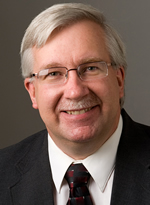 Purdue Extension dairy management specialist Mike Schutz has been appointed director of Extension's agriculture and natural resources programs in Indiana. In this role, which took effect on June 1, Schutz oversees Purdue Extension programs in such areas as farm management and safety, livestock, crops, energy, youth in agriculture, environmental stewardship and wildlife. "Dr. Schutz has earned the respect of county Extension educators, campus specialists and Purdue partners through his dairy Extension programs," said Purdue Extension Director Jason Henderson. "His collaborative leadership style will strengthen those relationships, which are essential to delivering world-class research-based education programming to build vibrant communities, strong families and profitable businesses on Main Street and at the farm gate." Dr. Schutz succeeds Jim Mintert, who is now director of Purdue's Center for Commercial Agriculture. Purdue Extension dairy management specialist Mike Schutz has been appointed director of Extension's agriculture and natural resources programs in Indiana. In this role, which took effect on June 1, Schutz oversees Purdue Extension programs in such areas as farm management and safety, livestock, crops, energy, youth in agriculture, environmental stewardship and wildlife. "Dr. Schutz has earned the respect of county Extension educators, campus specialists and Purdue partners through his dairy Extension programs," said Purdue Extension Director Jason Henderson. "His collaborative leadership style will strengthen those relationships, which are essential to delivering world-class research-based education programming to build vibrant communities, strong families and profitable businesses on Main Street and at the farm gate." Dr. Schutz succeeds Jim Mintert, who is now director of Purdue's Center for Commercial Agriculture.
Full story: http://www.purdue.edu/newsroom/releases/2014/Q2/schutz-to-lead-extensions-ag-and-natural-resources-programs.html
Wetzstein appointed new head of HLA department
 Hazel Wetzstein, professor of horticulture at the University of Georgia, has been appointed professor and head of Purdue University's Department of Horticulture and Landscape Architecture. The appointment is effective August 1. Dr. Wetzstein succeeds Robert Joly, who is returning to the faculty after serving eight years as department head. "Dr. Wetzstein is a respected scholar and thoughtful leader," Dean Akridge said. "She made a deep and positive impression on the Department of Horticulture and Landscape Architecture and the college during her visits here, and I could not be more excited about the future of the department under her leadership." Hazel Wetzstein, professor of horticulture at the University of Georgia, has been appointed professor and head of Purdue University's Department of Horticulture and Landscape Architecture. The appointment is effective August 1. Dr. Wetzstein succeeds Robert Joly, who is returning to the faculty after serving eight years as department head. "Dr. Wetzstein is a respected scholar and thoughtful leader," Dean Akridge said. "She made a deep and positive impression on the Department of Horticulture and Landscape Architecture and the college during her visits here, and I could not be more excited about the future of the department under her leadership."
Full story: http://www.purdue.edu/newsroom/releases/2014/Q2/wetzstein-appointed-new-head-of-purdue-hla-department.html
Extension Southwest District Director named
 Purdue Extension Director Jason Henderson announces that Julie Hart, Extension Director in Parke and Vigo counties, has accepted the position of Southwest District Director starting July 1, 2014. He says that Julie’s passion and enthusiasm for Extension showed throughout the interview process. Her experience in both rural and urban counties in the Southwest District and her demonstrated ability to mentor new educators in Vigo County will be tremendous assets to the Southwest District. Purdue Extension Director Jason Henderson announces that Julie Hart, Extension Director in Parke and Vigo counties, has accepted the position of Southwest District Director starting July 1, 2014. He says that Julie’s passion and enthusiasm for Extension showed throughout the interview process. Her experience in both rural and urban counties in the Southwest District and her demonstrated ability to mentor new educators in Vigo County will be tremendous assets to the Southwest District.
Looking to the next 100 years of Extension
 As the Cooperative Extension Service nationwide celebrates its centennial this year, Purdue Extension director Jason Henderson discusses what the next 100 years may hold in this interview for Connections Now! The article is part of a series commemorating the 100th anniversary of the 1914 Smith-Lever Act, which created the Cooperative Extension Service at land-grant universities across the United States. As the Cooperative Extension Service nationwide celebrates its centennial this year, Purdue Extension director Jason Henderson discusses what the next 100 years may hold in this interview for Connections Now! The article is part of a series commemorating the 100th anniversary of the 1914 Smith-Lever Act, which created the Cooperative Extension Service at land-grant universities across the United States.
Full story: http://www3.ag.purdue.edu/Connections/NOW/Pages/100_years_of_Extension_2.aspx#.U5hRJPldV8F
|
|
Awards and Recognitions
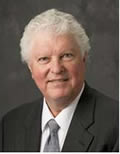 John Connor, Professor Emeritus of Agricultural Economics, will be presented with the Alfred E. Kahn Award for Antitrust Achievement on June 19 at the National Press Club in Washington, DC. The award is the highest honor given by the American Antitrust Institute. John Connor, Professor Emeritus of Agricultural Economics, will be presented with the Alfred E. Kahn Award for Antitrust Achievement on June 19 at the National Press Club in Washington, DC. The award is the highest honor given by the American Antitrust Institute.
 Steve Weller, Horticulture and Landscape Architecture, and his collaborators received $50,000 from the Trask Innovation Fund to support "Diagnostic Tools for Detection of Glyphosate Resistance in Giant Ragweed." The technology could provide information to farmers and growers to improve their herbicide selection for weed management of glyphosate-resistant weeds in glyphosate-resistant cropping systems during the planting season.The Purdue Research Foundation-managed Trask Innovation Fund is a development program to assist faculty and staff whose discoveries are being commercialized through the Office of Technology Commercialization. The Ag Alumni Seed Improvement Association Inc. will award an additional $10,000 to Weller and his team to develop their diagnostic tool. Steve Weller, Horticulture and Landscape Architecture, and his collaborators received $50,000 from the Trask Innovation Fund to support "Diagnostic Tools for Detection of Glyphosate Resistance in Giant Ragweed." The technology could provide information to farmers and growers to improve their herbicide selection for weed management of glyphosate-resistant weeds in glyphosate-resistant cropping systems during the planting season.The Purdue Research Foundation-managed Trask Innovation Fund is a development program to assist faculty and staff whose discoveries are being commercialized through the Office of Technology Commercialization. The Ag Alumni Seed Improvement Association Inc. will award an additional $10,000 to Weller and his team to develop their diagnostic tool.
 Connie Foster, main office receptionist in the Department of Agronomy, received this "Thumbs Up" acknowledgement from Dr. Jeff Volenec: "Your able assistance in helping us find rooms where we can spread stuff out and work on proposals over the last month has been very helpful. While this might seem relatively minor to some and go unnoticed, it is incredibly helpful to have the needed space and some amount of isolation so we can have quality time on these important tasks." Connie Foster, main office receptionist in the Department of Agronomy, received this "Thumbs Up" acknowledgement from Dr. Jeff Volenec: "Your able assistance in helping us find rooms where we can spread stuff out and work on proposals over the last month has been very helpful. While this might seem relatively minor to some and go unnoticed, it is incredibly helpful to have the needed space and some amount of isolation so we can have quality time on these important tasks."
 Sarah Correll, a junior in Agricultural Education, has been appointed to the student position on the Indiana Commission for Higher Education. She will serve a two-year term, beginning July 1. The Indiana Commission for Higher Education is a 14-member public body created in 1971 to define the missions of Indiana's colleges and universities, plan and coordinate the state's post-secondary education system, and ensure that Indiana's higher education system is aligned to meet the needs of students and the state. Sarah Correll, a junior in Agricultural Education, has been appointed to the student position on the Indiana Commission for Higher Education. She will serve a two-year term, beginning July 1. The Indiana Commission for Higher Education is a 14-member public body created in 1971 to define the missions of Indiana's colleges and universities, plan and coordinate the state's post-secondary education system, and ensure that Indiana's higher education system is aligned to meet the needs of students and the state.
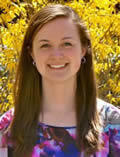 Emily Erickson, a senior in Biochemistry, has been awarded a second Astronaut Scholarship of $10,000. She plans to earn both a doctor of medicine degree in oncology and a Ph.D. in cancer biology to help develop more effective methods of breast cancer treatment. Emily was an intern in the summer of 2013 at the National Institutes of Health in Washington, D.C. The Astronaut Scholarship is funded by the Astronaut Scholarship Foundation, a nonprofit organization created by the Mercury 7 astronauts in 1984. Emily Erickson, a senior in Biochemistry, has been awarded a second Astronaut Scholarship of $10,000. She plans to earn both a doctor of medicine degree in oncology and a Ph.D. in cancer biology to help develop more effective methods of breast cancer treatment. Emily was an intern in the summer of 2013 at the National Institutes of Health in Washington, D.C. The Astronaut Scholarship is funded by the Astronaut Scholarship Foundation, a nonprofit organization created by the Mercury 7 astronauts in 1984.
|
|
Purdue Agriculture in the News
Purdue gets funding for commercializing PICS bags in Africa
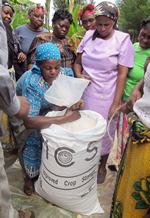 The Bill & Melinda Gates Foundation has funded a project to develop a program that will put the crop-saving PICS bags into the hands of more farmers in Sub-Saharan Africa countries to improve their food security and income. The award for the five-year PICS3 project moves the Purdue Improved Crop Storage bags from research and applications for only one crop to commercialization involving multiple crops. The hermetic triple bagging - a chemical-free storage method developed by Dr. Larry Murdock, Entomology - enables farmers to store a variety of major crops for more than one year after harvest. The technology helps improve food availability and increase income of smallholder farmers. When using PICS bags, farmers no longer need chemicals to control grain storage pests. The Bill & Melinda Gates Foundation has funded a project to develop a program that will put the crop-saving PICS bags into the hands of more farmers in Sub-Saharan Africa countries to improve their food security and income. The award for the five-year PICS3 project moves the Purdue Improved Crop Storage bags from research and applications for only one crop to commercialization involving multiple crops. The hermetic triple bagging - a chemical-free storage method developed by Dr. Larry Murdock, Entomology - enables farmers to store a variety of major crops for more than one year after harvest. The technology helps improve food availability and increase income of smallholder farmers. When using PICS bags, farmers no longer need chemicals to control grain storage pests.
Full story: http://www.purdue.edu/newsroom/releases/2014/Q2/purdue-gets-funding-for-commercializing-pics-bags-in-africa.html
Purdue hosts third Borlaug institute on global food security
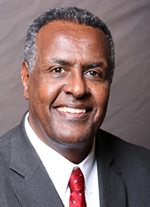 The third Borlaug Summer Institute on Global Food Security is being held on campus through June 21 for 30 graduate students from across the country taking on the challenge of helping to find solutions to world hunger. The two-week program, hosted by the Purdue Center for Global Food Security, combines lectures, practicums, small-group work and visits to farms for 30 students selected from 22 U.S. universities, including Purdue. Students represent nine countries - Singapore, Ecuador, India, Uganda, Nepal, Kenya, Honduras and Pakistan in addition to the United States - and eight academic disciplines, including plant pathology, agronomy, economics and conflict resolution. "The goal of the summer institute is to provide participants with a holistic understanding of the conceptual challenges around global food security, with a focus on cross-disciplinary problem solving of real-world development challenges," said Gebisa Ejeta, director of the Center for Global Food Security, distinguished professor of agronomy and the 2009 World Food Prize laureate, is among the featured speakers at the institute. The third Borlaug Summer Institute on Global Food Security is being held on campus through June 21 for 30 graduate students from across the country taking on the challenge of helping to find solutions to world hunger. The two-week program, hosted by the Purdue Center for Global Food Security, combines lectures, practicums, small-group work and visits to farms for 30 students selected from 22 U.S. universities, including Purdue. Students represent nine countries - Singapore, Ecuador, India, Uganda, Nepal, Kenya, Honduras and Pakistan in addition to the United States - and eight academic disciplines, including plant pathology, agronomy, economics and conflict resolution. "The goal of the summer institute is to provide participants with a holistic understanding of the conceptual challenges around global food security, with a focus on cross-disciplinary problem solving of real-world development challenges," said Gebisa Ejeta, director of the Center for Global Food Security, distinguished professor of agronomy and the 2009 World Food Prize laureate, is among the featured speakers at the institute.
Full story: http://www.purdue.edu/newsroom/releases/2014/Q2/purdue-to-host-third-borlaug-institute-on-global-food-security.html
Purdue, Feed the Future thinking beyond crop harvesting in Africa
 Purdue researchers will lead a $5 million, five-year effort to help countries in sub-Saharan Africa reduce hunger and poverty fueled by food waste. By improving processing and marketing of key crops, those in developing countries can make better use of food that already is being produced but is simply lost through poor storage or processing technologies and management practices.The Feed the Future Innovation Lab for Food Processing and Post-Harvest Handling is funded by Feed the Future, the U.S. government's Global Hunger and Food Security Initiative led by USAID. Led by project director Betty Bugusu, Food Science, nine researchers from Purdue and 11 from other universities in the United States and Africa will conduct research that will support and strengthen crops' "value chain," the process by which crops go from farm to market to fork. Purdue researchers will lead a $5 million, five-year effort to help countries in sub-Saharan Africa reduce hunger and poverty fueled by food waste. By improving processing and marketing of key crops, those in developing countries can make better use of food that already is being produced but is simply lost through poor storage or processing technologies and management practices.The Feed the Future Innovation Lab for Food Processing and Post-Harvest Handling is funded by Feed the Future, the U.S. government's Global Hunger and Food Security Initiative led by USAID. Led by project director Betty Bugusu, Food Science, nine researchers from Purdue and 11 from other universities in the United States and Africa will conduct research that will support and strengthen crops' "value chain," the process by which crops go from farm to market to fork.
Full story: http://www.purdue.edu/newsroom/releases/2014/Q2/purdue,-feed-the-future-thinking-beyond-crop-harvesting-in-africa.html
Drop in global malnutrition depends on ag productivity, climate change
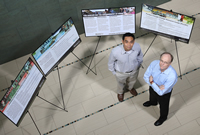 Global malnutrition could fall 84 percent by the year 2050 as incomes in developing countries grow - but only if agricultural productivity continues to improve and climate change does not severely damage agriculture, Purdue researchers say. "The prevalence and severity of global malnutrition could drop significantly by 2050, particularly in the poorest regions of the world," said Tom Hertel, Agricultural Economics. "But if productivity does not grow, global malnutrition will worsen even if incomes increase. Climate change also adds a good deal of uncertainty to these projections." Hertel and doctoral student Uris Baldos developed a combination of economic models to predict how global food security from 2006 to 2050 could be affected by changes in population, income, bioenergy, agricultural productivity and climate. Global malnutrition could fall 84 percent by the year 2050 as incomes in developing countries grow - but only if agricultural productivity continues to improve and climate change does not severely damage agriculture, Purdue researchers say. "The prevalence and severity of global malnutrition could drop significantly by 2050, particularly in the poorest regions of the world," said Tom Hertel, Agricultural Economics. "But if productivity does not grow, global malnutrition will worsen even if incomes increase. Climate change also adds a good deal of uncertainty to these projections." Hertel and doctoral student Uris Baldos developed a combination of economic models to predict how global food security from 2006 to 2050 could be affected by changes in population, income, bioenergy, agricultural productivity and climate.
Full story: http://www.purdue.edu/newsroom/releases/2014/Q2/drop-in-global-malnutrition-depends-on-ag-productivity,-climate-change.html
Study identifies enzymes that help fix cancer-causing DNA defects
 Purdue researchers have identified an important enzyme pathway that helps prevent new cells from receiving too many or too few chromosomes, a condition that has been directly linked to cancer and other diseases. Mark Hall, Biochemistry, found that near the end of cell division, the enzyme Cdc14 activates Yen1, an enzyme that ensures any breaks in DNA are fully repaired before the parent cell distributes copies of the genome to daughter cells. This process helps safeguard against some of the most devastating genome errors, including the loss of chromosomes or chromosome segments. "It only takes one cell to start a tumor," Hall said. "This study gives us a platform for figuring out exactly what these enzymes are doing in human cells and how they impact genome stability and the avoidance of cancer." Purdue researchers have identified an important enzyme pathway that helps prevent new cells from receiving too many or too few chromosomes, a condition that has been directly linked to cancer and other diseases. Mark Hall, Biochemistry, found that near the end of cell division, the enzyme Cdc14 activates Yen1, an enzyme that ensures any breaks in DNA are fully repaired before the parent cell distributes copies of the genome to daughter cells. This process helps safeguard against some of the most devastating genome errors, including the loss of chromosomes or chromosome segments. "It only takes one cell to start a tumor," Hall said. "This study gives us a platform for figuring out exactly what these enzymes are doing in human cells and how they impact genome stability and the avoidance of cancer."
Full story: http://www.purdue.edu/newsroom/releases/2014/Q2/study-identifies-enzymes-that-help-fix-cancer-causing-dna-defects.html
Termite genome lays roadmap for 'greener' control measures
 A team of international researchers has sequenced the genome of the Nevada dampwood termite, providing an inside look into the biology of the social insect and uncovering new genetic targets for pest control. Michael Scharf, Entomology, who participated in the collaborative study, said the genome could help researchers develop control strategies that are more specific than the broad-spectrum chemicals conventionally used to treat termite infestations. "The termite genome reveals many unique genetic targets that can be disrupted for better termite control," said Scharf, who is the O. Wayne Rollins/Orkin Chair in Molecular Physiology and Urban Entomology. "Depending on which gene or protein that is targeted, we could disrupt termites' neurological processes, molting, digestive factors or cuticle formation. We're just limited by our imagination." A team of international researchers has sequenced the genome of the Nevada dampwood termite, providing an inside look into the biology of the social insect and uncovering new genetic targets for pest control. Michael Scharf, Entomology, who participated in the collaborative study, said the genome could help researchers develop control strategies that are more specific than the broad-spectrum chemicals conventionally used to treat termite infestations. "The termite genome reveals many unique genetic targets that can be disrupted for better termite control," said Scharf, who is the O. Wayne Rollins/Orkin Chair in Molecular Physiology and Urban Entomology. "Depending on which gene or protein that is targeted, we could disrupt termites' neurological processes, molting, digestive factors or cuticle formation. We're just limited by our imagination."
Full story: http://www.purdue.edu/newsroom/releases/2014/Q2/termite-genome-lays-roadmap-for-greener-control-measures.html
Armyworm showing up in specific, at-risk cornfields
 While armyworm captures haven't been as high in Indiana as they have in other states to the south, Purdue Extension entomologists say there has been some concentrated armyworm egg-laying in specific, high-risk cornfields. High-risk fields are those where there is still dense grassy vegetation, such as wheat, grass hay or grass cover crops. Farmers who planted no-till corn into a grass cover crop, especially annual rye, need to scout their fields right away for signs of armyworm feeding. "Hatched larvae will move from the dying grasses to emerging and emerged corn," said Christian Krupke. "There is nothing else that resembles armyworm feeding at this time of year." Krupke and colleague John Obermeyer said that even if farmers have planted Bt corn hybrids with insect resistance, they need to pay close attention to signs of armyworm. While armyworm captures haven't been as high in Indiana as they have in other states to the south, Purdue Extension entomologists say there has been some concentrated armyworm egg-laying in specific, high-risk cornfields. High-risk fields are those where there is still dense grassy vegetation, such as wheat, grass hay or grass cover crops. Farmers who planted no-till corn into a grass cover crop, especially annual rye, need to scout their fields right away for signs of armyworm feeding. "Hatched larvae will move from the dying grasses to emerging and emerged corn," said Christian Krupke. "There is nothing else that resembles armyworm feeding at this time of year." Krupke and colleague John Obermeyer said that even if farmers have planted Bt corn hybrids with insect resistance, they need to pay close attention to signs of armyworm.
Full story: http://www.purdue.edu/newsroom/releases/2014/Q2/armyworm-showing-up-in-specific,-at-risk-cornfields.html
Purdue webinars, tour to help farmers get into hops business
 Farmers new to producing hops or considering getting started in it as the craft brewing industry continues to grow will learn about opportunities and risks through two Purdue Extension webinars and a tour of new research plots.The free webinars will be on June 19 and July 10, and the tour will be on Aug. 21 at Purdue's horticultural research farm known as Meigs at theThrockmorton Purdue Agricultural Center south of Lafayette. "Time is ripe for developing a hops industry in Indiana," said Lori Hoagland, Horticulture and Landscape Architecture, an organizer of the events. "The brewing industry is not only growing but there is significant interest by the brewers in offering clientele a Hoosier brew and, perhaps more interesting, a variety of products that are unique to Indiana because of the specific qualities of Indiana-grown ingredients." Farmers new to producing hops or considering getting started in it as the craft brewing industry continues to grow will learn about opportunities and risks through two Purdue Extension webinars and a tour of new research plots.The free webinars will be on June 19 and July 10, and the tour will be on Aug. 21 at Purdue's horticultural research farm known as Meigs at theThrockmorton Purdue Agricultural Center south of Lafayette. "Time is ripe for developing a hops industry in Indiana," said Lori Hoagland, Horticulture and Landscape Architecture, an organizer of the events. "The brewing industry is not only growing but there is significant interest by the brewers in offering clientele a Hoosier brew and, perhaps more interesting, a variety of products that are unique to Indiana because of the specific qualities of Indiana-grown ingredients."
Full story: http://www.purdue.edu/newsroom/releases/2014/Q2/purdue-webinars,-tour-to-help-farmers-get-into-hops-business.html
Environmental conference provides toolkit for teachers to educate students about climate change
 The Dynamics of Climate conference, which gives educators an opportunity to trade conjecture and learn the facts of climate science, will return to the Purdue campus June 18-20. The event will include a keynote lecture by Purdue chemistry professor Paul Shepson, panel discussions on climate change, and sessions that take participants through the implementation of a professional development toolkit for climate science education. Indiana State Climatologist Dev Niyogi, Agronomy, is co-organizer of the event. "The toolkit is designed to give a basic but a timely and important understanding about climate from a climate systems perspective," said conference co-organizer Dan Shepardson, professor of curriculum and instruction and earth, atmospheric and planetary sciences. "This will be a helpful resource for teachers and professional educators, with content geared especially for educating middle school and high school students." The Dynamics of Climate conference, which gives educators an opportunity to trade conjecture and learn the facts of climate science, will return to the Purdue campus June 18-20. The event will include a keynote lecture by Purdue chemistry professor Paul Shepson, panel discussions on climate change, and sessions that take participants through the implementation of a professional development toolkit for climate science education. Indiana State Climatologist Dev Niyogi, Agronomy, is co-organizer of the event. "The toolkit is designed to give a basic but a timely and important understanding about climate from a climate systems perspective," said conference co-organizer Dan Shepardson, professor of curriculum and instruction and earth, atmospheric and planetary sciences. "This will be a helpful resource for teachers and professional educators, with content geared especially for educating middle school and high school students."
Full story: http://www.purdue.edu/newsroom/releases/2014/Q2/environmental-conference-provides-toolkit-for-teachers-to-educate-students-about-climate-change.html
Indiana farm tour to highlight exceptional management
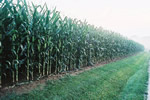 This year's Farm Management Tour, organized by the Department of Agricultural Economics, will showcase five successful Indiana farms in Spencer and Dubois counties June 16-17. The tour, in its 82nd year, encourages a high level of management knowledge and skill among Indiana farmers. It is open to anyone interested in farm management and family farm businesses. A variety of farm-related topics will be highlighted in interviews with the host farmers and mini-tours at three of the southern Indiana farms. "The farmers will share their keys to successful farm management and explain how the management of their operations is changing in response to the vibrant agricultural economy and the changing circumstances of their families," said Alan Miller, Purdue Extension farm business specialist and coordinator of the tour. This year's Farm Management Tour, organized by the Department of Agricultural Economics, will showcase five successful Indiana farms in Spencer and Dubois counties June 16-17. The tour, in its 82nd year, encourages a high level of management knowledge and skill among Indiana farmers. It is open to anyone interested in farm management and family farm businesses. A variety of farm-related topics will be highlighted in interviews with the host farmers and mini-tours at three of the southern Indiana farms. "The farmers will share their keys to successful farm management and explain how the management of their operations is changing in response to the vibrant agricultural economy and the changing circumstances of their families," said Alan Miller, Purdue Extension farm business specialist and coordinator of the tour.
More information: http://www.purdue.edu/newsroom/releases/2014/Q2/indiana-farm-tour-to-highlight-exceptional-management.html
Top Farmer Conference helps farmers improve operations
Corn Belt farmers and agribusiness managers can learn strategies to adapt to a changing business environment at Purdue University's annual Top Farmer Conference July 15-16. Purdue and University of Illinois farm management experts will help participants look at their operations from a business standpoint and analyze their economic opportunities and challenges. "Midwest agriculture experienced an unprecedented boom from the mid-2000s through 2013, but margins in the crop sector could tighten significantly over the next several years," said Jim Mintert, agricultural economist and director of the Center for Commercial Agriculture, which hosts the conference. "We developed the sessions with that in mind. We want participants to focus on key decisions farmers will be making in this new environment."
Full story: http://www.purdue.edu/newsroom/releases/2014/Q2/top-farmer-conference-helps-farmers-improve-operations.html
AgrAbility publication helps guard against back problems
 Farmers, ranchers and anyone involved in agriculture and home gardening can learn how to reduce the risks of developing back problems with a new publication by AgrAbility. BACK on the Farm, BACK in the Saddle also includes information on how to manage existing back problems. "Back problems are consistently the most common disabling conditions reported by AgrAbility clients," said Paul Jones, AgrAbility project manager based at Purdue. "In fact, back problems are some of the most common complaints by workers in all industries, and they often result in lost work time. While back problems are challenging, they can be managed." The 21-page booklet, offered free of charge, discusses many back problems common in agriculture as well as preventing, managing and treating them. Farmers, ranchers and anyone involved in agriculture and home gardening can learn how to reduce the risks of developing back problems with a new publication by AgrAbility. BACK on the Farm, BACK in the Saddle also includes information on how to manage existing back problems. "Back problems are consistently the most common disabling conditions reported by AgrAbility clients," said Paul Jones, AgrAbility project manager based at Purdue. "In fact, back problems are some of the most common complaints by workers in all industries, and they often result in lost work time. While back problems are challenging, they can be managed." The 21-page booklet, offered free of charge, discusses many back problems common in agriculture as well as preventing, managing and treating them.
Full story: http://www.purdue.edu/newsroom/releases/2014/Q2/agrability-publication-helps-guard-against-back-problems.html
|
|
University News
Purdue students set record for summer study abroad
Purdue University will see its largest number of students studying abroad this summer thanks to support from Purdue Moves. This summer, 1,003 undergraduate students will be studying in 123 programs in 42 countries. In 2013, 735 students participated in summer study abroad programs. Purdue Moves awarded study abroad scholarships to 943 students this summer. As part of the study abroad initiative, Purdue offers up $1,000 for qualified undergraduate students who participate in a shorter-term, formalized credit-bearing study abroad program. For summer programs of at least six credits and six weeks, awards up to $2,000 are offered. Larger scholarship amounts up to $3,000 are available for semester and yearlong program participation.
Full story: http://www.purdue.edu/newsroom/releases/2014/Q2/purdue-students-set-record-for-summer-study-abroad.html
Trustees extend tuition freeze through 2015-16 academic year
The Purdue Board of Trustees on May 16 voted to endorse extending the university's tuition freeze through the 2015-16 academic year.Trustees approved freezing tuition and most fees in May 2013 for on-campus students for two years, through the 2014-15 academic year. By flatlining tuition through 2015-16, students who entered Purdue in the fall of 2012 will have completed a four-year period without any base tuition increase, the first such four-year period since the four years ending with the 1972-73 academic year. Affordability is a key part of the university's Purdue Moves, a range of initiatives designed to broaden Purdue's global impact and enhance educational opportunities for its students.
Full story: http://www.purdue.edu/newsroom/releases/2014/Q2/trustees-extend-tuition-freeze-through-2015-16-academic-year.html
Emergency preparedness training expands to online sessions
All-Hazards Awareness Training, which will continue to be offered to the Purdue community through in-person sessions, will also be offered online through the university's Blackboard Learn website. To register for the facilitated sessions held at the Purdue Police Department Conference Room (Terry Building), go to the Emergency Preparedness website. To take the All Hazards Awareness Training online, go to the Blackboard Learn website and click "Browse Course Catalog." In the "Search Catalog" section type in "All-Hazards Awareness Training" and enroll in the course. The one-hour All-Hazards Awareness Training sessions, open to faculty, staff and students, have occurred on a regular basis since February in the Terry Conference Room at the Purdue Police Department. It also has been offered at sites around campus upon request. The training is designed to help people know how to react in potentially dangerous events that threaten campus safety.
Full story: http://www.purdue.edu/newsroom/releases/2014/Q2/emergency-preparedness-training-expands-to-online-sessions.html
Purdue to offer new housing option for academic guests
Purdue will begin offering a new on-campus housing option for academic guests this summer through a joint venture between the Office of the Provost, Housing and Food Services and the Purdue Research Foundation. The 125 Waldron St. apartments will be available exclusively to visiting scholars or campus guests invited by academic departments at Purdue beginning in August 2014. Suresh Garimella, chief global affairs officer, piloted the project intended to enhance the residential experience of those visiting Purdue from all over the world.
Full story: http://www.purdue.edu/newsroom/purduetoday/releases/2014/Q2/purdue-to-offer-new-housing-option-for-academic-guests.html
Gallup/Purdue Study: Life in College Matters for Life After College
When it comes to being engaged at work and experiencing high well-being after graduation, a new Gallup-Purdue University study of college graduates shows that the type of institution they attended matters less than what they experienced there.
Full story: http://www.gallup.com/poll/168848/life-college-matters-life-college.aspx
Diversity and Inclusion program guide offered online
The Division of Diversity and Inclusion's Spring 2014 Diversity and Inclusion Program Guide is now online. The guide, which offers a comprehensive listing of the division's programs and services, is available at www.purdue.edu/diversity-inclusion/program-guide.
|
|
|
|
|
 Hope your summer is off to a great start! This is the time of year when I regularly get some form of the question: “What are you doing with your spare time now that it is summer?” Those not directly involved with Purdue Agriculture just don’t understand the very high level of activity in the College right through the summer! Some months, the topic I need to address in my InFocus column is blatantly obvious, and this is one of those months. Over the last six weeks, our College’s work to address global food insecurity has certainly been the story. You can read more in this issue of InFocus about many of these projects and activities.
Hope your summer is off to a great start! This is the time of year when I regularly get some form of the question: “What are you doing with your spare time now that it is summer?” Those not directly involved with Purdue Agriculture just don’t understand the very high level of activity in the College right through the summer! Some months, the topic I need to address in my InFocus column is blatantly obvious, and this is one of those months. Over the last six weeks, our College’s work to address global food insecurity has certainly been the story. You can read more in this issue of InFocus about many of these projects and activities.

 The Ag Research Spotlight shines each month on an individual whose work reflects our commitment to the six strategic themes that guide Agricultural Research at Purdue. The April spotlight is on
The Ag Research Spotlight shines each month on an individual whose work reflects our commitment to the six strategic themes that guide Agricultural Research at Purdue. The April spotlight is on  The May Ag Research Spotlight is on
The May Ag Research Spotlight is on  The Graduate Research Spotlight highlights graduate students and their work. This month’s spotlight is on Hui Yan, Animal Sciences; advisor Kola Ajuwon.
The Graduate Research Spotlight highlights graduate students and their work. This month’s spotlight is on Hui Yan, Animal Sciences; advisor Kola Ajuwon.


 As the Cooperative Extension Service nationwide celebrates its centennial this year,
As the Cooperative Extension Service nationwide celebrates its centennial this year, 


 Sarah Correll, a junior in
Sarah Correll, a junior in  Emily Erickson, a senior in
Emily Erickson, a senior in  The
The  The third Borlaug Summer Institute on Global Food Security is being held on campus through June 21 for 30 graduate students from across the country taking on the challenge of helping to find solutions to world hunger. The two-week program, hosted by the Purdue
The third Borlaug Summer Institute on Global Food Security is being held on campus through June 21 for 30 graduate students from across the country taking on the challenge of helping to find solutions to world hunger. The two-week program, hosted by the Purdue  Purdue researchers will lead a $5 million, five-year effort to help countries in sub-Saharan Africa reduce hunger and poverty fueled by food waste. By improving processing and marketing of key crops, those in developing countries can make better use of food that already is being produced but is simply lost through poor storage or processing technologies and management practices.The Feed the Future Innovation Lab for Food Processing and Post-Harvest Handling is funded by
Purdue researchers will lead a $5 million, five-year effort to help countries in sub-Saharan Africa reduce hunger and poverty fueled by food waste. By improving processing and marketing of key crops, those in developing countries can make better use of food that already is being produced but is simply lost through poor storage or processing technologies and management practices.The Feed the Future Innovation Lab for Food Processing and Post-Harvest Handling is funded by  Global malnutrition could fall 84 percent by the year 2050 as incomes in developing countries grow - but only if agricultural productivity continues to improve and climate change does not severely damage agriculture, Purdue researchers say. "The prevalence and severity of global malnutrition could drop significantly by 2050, particularly in the poorest regions of the world," said
Global malnutrition could fall 84 percent by the year 2050 as incomes in developing countries grow - but only if agricultural productivity continues to improve and climate change does not severely damage agriculture, Purdue researchers say. "The prevalence and severity of global malnutrition could drop significantly by 2050, particularly in the poorest regions of the world," said  Purdue researchers have identified an important enzyme pathway that helps prevent new cells from receiving too many or too few chromosomes, a condition that has been directly linked to cancer and other diseases.
Purdue researchers have identified an important enzyme pathway that helps prevent new cells from receiving too many or too few chromosomes, a condition that has been directly linked to cancer and other diseases.  A team of international researchers has sequenced the genome of the Nevada dampwood termite, providing an inside look into the biology of the social insect and uncovering new genetic targets for pest control.
A team of international researchers has sequenced the genome of the Nevada dampwood termite, providing an inside look into the biology of the social insect and uncovering new genetic targets for pest control.  While armyworm captures haven't been as high in Indiana as they have in other states to the south, Purdue Extension entomologists say there has been some concentrated armyworm egg-laying in specific, high-risk cornfields. High-risk fields are those where there is still dense grassy vegetation, such as wheat, grass hay or grass cover crops. Farmers who planted no-till corn into a grass cover crop, especially annual rye, need to scout their fields right away for signs of armyworm feeding. "Hatched larvae will move from the dying grasses to emerging and emerged corn," said
While armyworm captures haven't been as high in Indiana as they have in other states to the south, Purdue Extension entomologists say there has been some concentrated armyworm egg-laying in specific, high-risk cornfields. High-risk fields are those where there is still dense grassy vegetation, such as wheat, grass hay or grass cover crops. Farmers who planted no-till corn into a grass cover crop, especially annual rye, need to scout their fields right away for signs of armyworm feeding. "Hatched larvae will move from the dying grasses to emerging and emerged corn," said  Farmers new to producing hops or considering getting started in it as the craft brewing industry continues to grow will learn about opportunities and risks through two
Farmers new to producing hops or considering getting started in it as the craft brewing industry continues to grow will learn about opportunities and risks through two  The
The  This year's
This year's  Farmers, ranchers and anyone involved in agriculture and home gardening can learn how to reduce the risks of developing back problems with a new publication by
Farmers, ranchers and anyone involved in agriculture and home gardening can learn how to reduce the risks of developing back problems with a new publication by  Purdue University is a community where diversity is valued and incidents of hate and bias are not tolerated. Students, faculty, staff, and campus visitors who feel that they have been the victim of a bias related incident (or who have witnessed a bias related incident) are encouraged to report it online at
Purdue University is a community where diversity is valued and incidents of hate and bias are not tolerated. Students, faculty, staff, and campus visitors who feel that they have been the victim of a bias related incident (or who have witnessed a bias related incident) are encouraged to report it online at